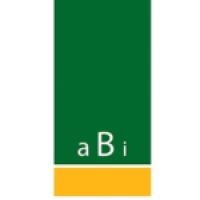The Graduate trainee will specifically be assigned to the Project on Strengthening Capacities on Effective Women Economic Empowerment (WEE) and Care Work Interventions in Uganda. S/he will focus on supporting the “Women’s Economic Empowerment and Care Policy Help Desk.” The “Help Desk” is an initiative through which information on Care Policy can be provided to interested parties. The purpose of the desk is to ensure that available and researched information reaches a broad audience of those who pro-actively seek it. The Graduate Trainee will work alongside the GJ&WR team and receive on the job training on aspects of the GJWR programme.
• With support from the line manager, coordinate the processes to collect, review and respond to client feedback through the help desk.
• Compile and regularly update information on WEE and Care.
• To contribute to Gender Justice and Women’s Rights (GJ&WR) Theme planning and programme implementation.
• Document and share key results on assigned activities in monthly project review meetings and targets in the programme.
• Provide Support to the WEE and care help desk and any other duties assigned
Job Requirements
Education:
• A University Degree in a relevant field of study particularly Gender Studies or Development Studies with course units undertaken in Gender.
Experience:
• Fair Knowledge of women economic empowerment and care
• Previous internship experiences
Key Attributes:
• Good Communication and Interpersonal Skills, Computer and IT skills
• Ability to demonstrate sensitivity to cultural differences and gender issues, as well as the commitment to equal opportunities.
• Ability to demonstrate an openness and willingness to learn about the application of gender/gender mainstreaming, women’s rights, and diversity for all aspects of development work.
• Commitment to Oxfam’s safeguarding policies to ensure all people who come into contact with Oxfam are as safe as possible.
• Sound understanding of the national political economy and global context with theoretical understanding on social change process is desirable.
Organisational Values:
• Equality: We believe everyone has the rights to be treated fairly and to have the same rights and opportunities.
• Empowerment: We acknowledge and seek to expand people’s agency over their lives and the decisions that impact them.
• Solidarity: We join hands, support and collaborate across boundaries in working towards a just and sustainable world.
• Inclusiveness: We embrace diversity and difference and value the perspectives and contributions of all people and communities in their fight against poverty and injustice.
• Accountability: We take responsibility for our action and inaction and hold ourselves accountable to the people we work with and for.
• Courage: We speak truth to power and act with conviction on the justice of our causes.
Key Behavioral Competencies (based on Oxfam’s Leadership Model)
Competencies
Description
Decisiveness
• We are comfortable to make transparent decisions and to adapt decision making modes to the context and needs.
Influencing
• We have the ability to engage with diverse stakeholders in a way that leads to increased impact for the organization We spot opportunities to influence effectively and where there are no opportunities we have the ability to create them in a respectful and impactful manner.
Humility
• We put ‘we’ before ‘me’ and place an emphasis on the power of the collective, nurture the team and play to the strengths of each individual. We are not concerned with hierarchical power, and we engage with, trust and value the knowledge and expertise of others across all levels of the organization.
Relationship Building
• We understand the importance of building relationship, within and outside the organization. We have the ability to engage with traditional and non-traditional stakeholders in ways that lead to increased impact for the organization.
Listening
• We are good listeners who can see where deeper levels of thoughts and tacit assumptions differ. Our messages to others are clear and consider different preferences.
Mutual Accountability
• We can explain our decisions and how we have taken them based on our organizational values. We are ready to be held to account for what we do and how we behave, as we are also holding others to account in a consistent manner.
Agility, Complexity, and Ambiguity
• We scan the environment, anticipate changes, are comfortable with lack of clarity and deal with a large number of elements interacting in diverse and unpredictable ways.
Systems Thinking
• We view problems as parts of an overall system and in their relation to the whole system, rather than reacting to a specific part, outcome or event in isolation. We focus on cyclical rather than linear cause and effect. By consistently practicing systems thinking we are aware of and manage well unintended consequences of organizational decisions and actions.
Strategic Thinking and Judgment
• We use judgment, weighing risk against the imperative to act. We make decisions consistent with organizational strategies and values.
Vision Setting
• We have the ability to identify and lead visionary initiatives that are beneficial for our organization and we set high-level direction through a visioning process that engages the organization and diverse external stakeholders.
Self-Awareness
• We are able to develop a high degree of self-awareness around our own strengths and weaknesses and our impact on others. Our self-awareness enables us to moderate and self-regulate our behaviors to control and channel our impulses for good purposes.
Enabling
• We all work to effectively empower and enable others to deliver the organizations goals through creating conditions of success. We passionately invest in others by developing their careers, not only their skills for the job. We provide freedom; demonstrate belief and trust provide appropriate support.










